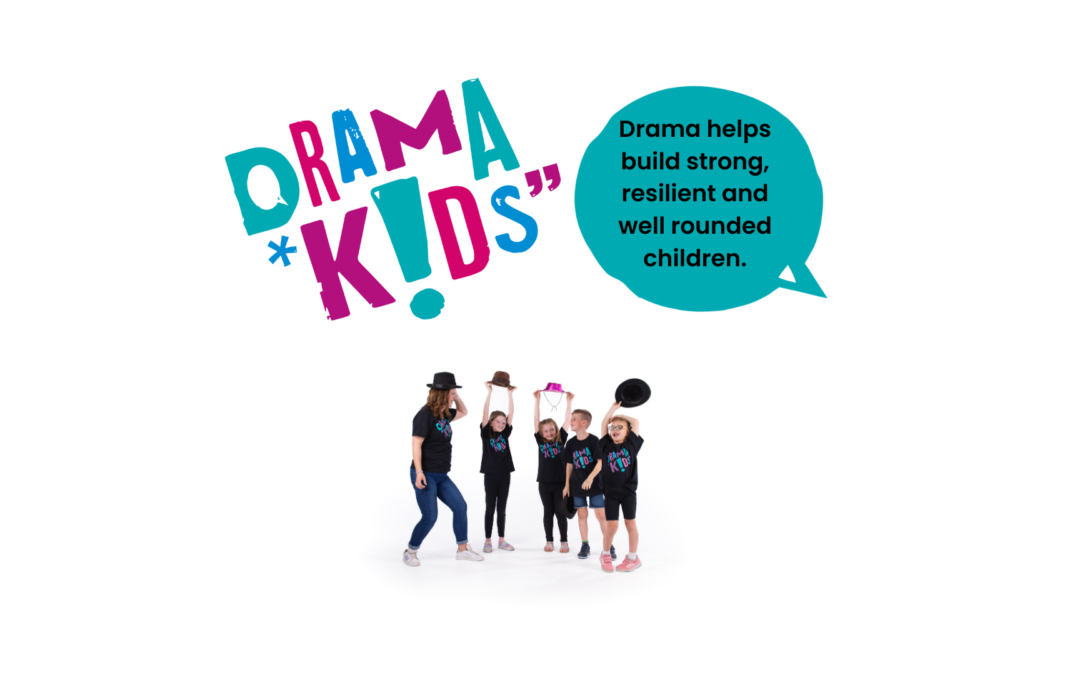Drama can play a significant role in building strong, resilient, and well-rounded children in various ways:
- Emotional Expression: At Drama Kids we provide a safe and supportive space for children to explore and express their emotions. By engaging in dramatic activities such as role-playing, improvisation, and storytelling, children learn to identify and communicate their feelings effectively, which promotes emotional intelligence and resilience.
- Confidence and Self-Esteem: Participating in our weekly drama lesson’s builds children’s confidence in themselves and their abilities. Whether they are performing in front of an audience or collaborating with peers, children gain a sense of self-assurance that can positively impact other areas of their lives.
- Empathy and Understanding: We encourage children to step into the shoes of others and see the world from different perspectives. By portraying diverse characters and experiencing different situations, children develop empathy and understanding for others, which fosters compassion and cooperation.
- Communication Skills: Our weekly lessons enhance children’s verbal and non-verbal communication skills. Through activities like improvisation and role-playing, children learn to articulate their thoughts and ideas clearly, listen actively to others, and use body language and facial expressions to convey messages effectively.
- Creative Thinking: Drama stimulates children’s imagination and creativity. By engaging in activities such as storytelling, creative movement, and character development, children learn to think outside the box, problem-solve, and approach challenges with innovation and flexibility.
- Collaboration and Teamwork: Drama often involves working as part of a team to create performances or scenes. This collaborative aspect of drama teaches children how to work together, communicate effectively, and respect others’ ideas and contributions, fostering important social and interpersonal skills.
- Resilience and Adaptability: In drama, children may face challenges such as memorizing lines, overcoming stage fright, or dealing with unexpected situations during performances. Learning to navigate these challenges builds resilience and adaptability, helping children develop coping strategies and bounce back from setbacks.
- Cultural and Historical Understanding: Through drama, children can explore different cultures, historical events, and literary works in a hands-on and experiential way. By embodying characters and scenarios from various time periods and contexts, children gain a deeper understanding of the world around them and develop cultural awareness and appreciation.
Overall, drama provides a rich and holistic learning experience that nurtures children’s emotional, social, cognitive, and creative development, helping them become strong, confident, and compassionate individuals.
